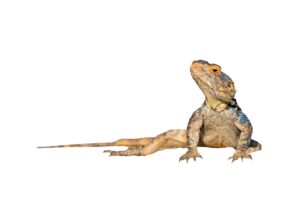A lot of the problems that you may see with reptiles come from their husbandry, so how they are kept and mainly their food, so their diet. It is really important to understand, before you even get a reptile, to understand what you need to buy equipment wise and how prepared you need to be […]
Comprehensive Guide to Reptile First Aid
 Building a Reptile First Aid Kit
Building a Reptile First Aid Kit
Having a well-equipped first aid kit tailored for reptiles ensures you’re prepared for minor injuries and emergencies. Essential items include:
- Disinfectants: Povidone-iodine or chlorhexidine solutions for cleaning wounds.
- Topical Antibiotics: Ointments to prevent infection in minor cuts.
- Bandaging Materials: Gauze pads, non-stick dressings, and Vetrap elastic wrap.
- Tools: Tweezers, magnifying glass, and nail clippers.
- Emergency Heat Source: Heat packs to maintain body temperature during transport.
- Hydration Supplies: Unflavoured Pedialyte for rehydration.
For a comprehensive list, refer to our detailed article on Building a Reptile First Aid Kit.
Common Health Issues in Reptiles
Understanding prevalent health problems helps in early detection and treatment:
- Metabolic Bone Disease (MBD): Caused by calcium deficiency, leading to weakened bones.
- Respiratory Infections: Often due to inadequate humidity or temperature.
- Parasite Infestations: Mites and ticks can cause irritation and transmit diseases.
- Shedding Problems: Retained skin can lead to constriction injuries.
Regular veterinary check-ups and proper husbandry are key to prevention.
Emergency Response and First Aid Procedures
In case of an emergency, prompt and appropriate action is vital:
- Wound Care: Clean cuts with a disinfectant and apply a topical antibiotic.
- Burns: Rinse the area with cool water and seek veterinary care immediately.
- Prolapse: Keep the exposed tissue moist with a sterile saline solution and consult a vet promptly.
- Dehydration: Offer fluids orally or via a veterinarian-recommended method.
Always consult a reptile-savvy veterinarian for serious injuries or if you’re uncertain about the appropriate care.
Preventive Measures
Prevention is the best approach to ensure your reptile’s health:
- Maintain proper enclosure conditions, including temperature, humidity, and lighting.
- Provide a balanced diet appropriate for your reptile species.
- Regularly clean and disinfect the habitat to prevent infections.
- Handle your reptile gently to reduce stress and potential injuries.
For more information on reptile care, visit our Reptile Care Articles.
Further Resources
Enhance your knowledge and preparedness with these resources:
- Pet First Aid Training Courses
- Comprehensive Pet First Aid Kits
- Additional Articles on Reptile First Aid
For professional training, consider enrolling in our Advanced Pet First Aid Level 3 (VTQ) course.

